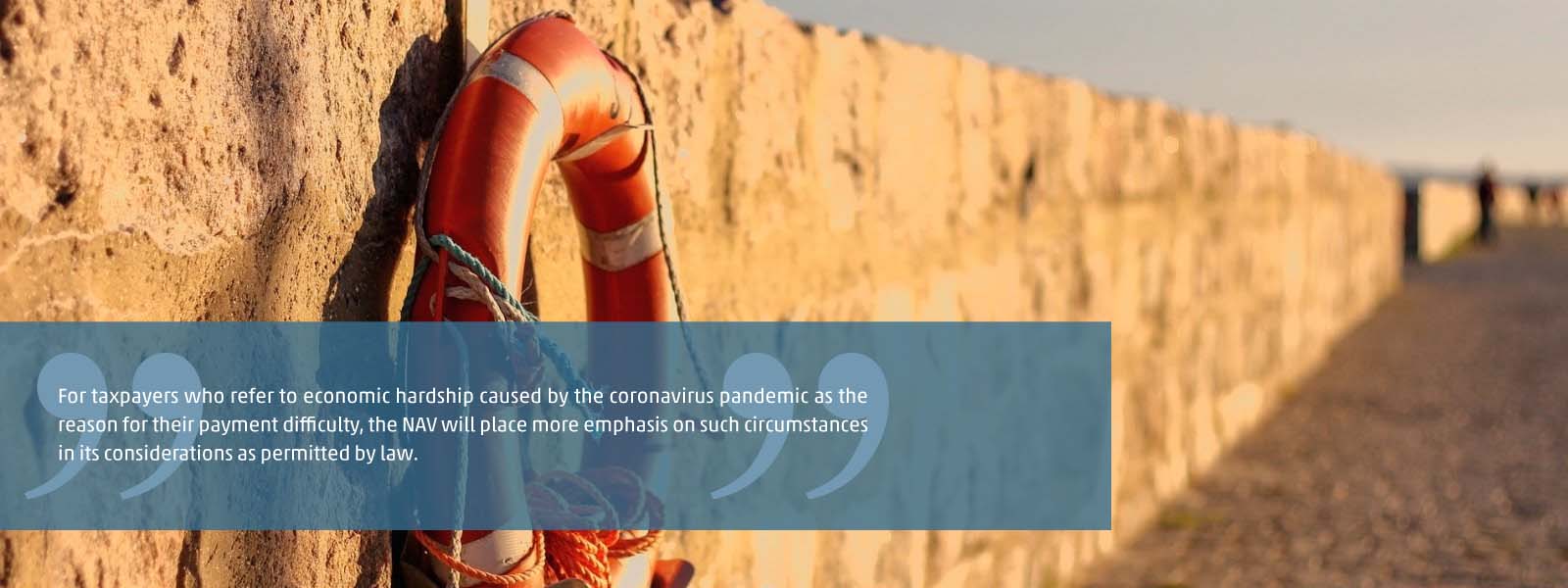The coronavirus pandemic is undermining many Hungarian businesses, even making it impossible for them to operate. Many entities are being forced to partly or fully suspend their activities and send their employees on involuntary leave, or in worst-case scenarios, lay them off. In these tough times the Hungarian government is bringing in measures one after the other to throw a lifeline at companies in trouble.
Measures related to special payment options during state of emergency
One important part of the latest tax relief measures is that companies may ask for their tax to be reduced – without being subject to stamp duty – if they have fallen into difficulty because of the pandemic. This can amount to no more than HUF 5 million (roughly EUR 14,000) per company. Furthermore, up to a tax debt of HUF 5 million (roughly EUR 14,000) companies can ask for payment in instalments over 12 months without any extra charge, or a payment deferral for 6 months, again without any extra charge.
Beside these measures, businesses who have drifted into financial instability should not forget about the rules on special payment options which have long been part of tax legislation. Below we will answer some of the most important questions about these rules and in relation to the topic.
What exactly do we mean by special payment options?
By special payment options we mean
- deferring,
- instalment payments of, or
- reducing, and
- forgiving payment obligations at the Hungarian tax authority.
The first two options are defined separately by Hungarian legislation as payment relief.
Who can claim deferred payment and payment in instalments, and how?
Deferred payment and payment in instalments may be permitted at the request of the taxpayer at the tax authority. Payment relief may be permitted if the difficulty in paying
- is caused by reasons not attributable to the company, or if it conducted its business in a way to avoid such difficulty in a manner expected in such a situation, and
- is temporary in nature, and payment of the tax is highly likely later on.
It is important that the Hungarian Tax and Customs Administration (NAV) considers the reasons and conditions of the payment difficulty when assessing the request and determining the conditions. According to our information, for taxpayers who refer to economic hardship caused by the coronavirus pandemic as the reason for their payment difficulty, the NAV will place more emphasis on such circumstances in its considerations as permitted by law.
In which cases might payment relief not be granted?
Payment relief shall not be granted
- for advances on the personal income tax of natural persons and deducted income tax,
- for collected taxes,
- for contributions deducted by the paying agent from the natural person, and
- for VAT taxpayers of a tax group during the period of the tax group.
Can eligible taxpayers expect interest/charges on the payment relief?
The NAV levies the following charges in the event of payment relief:
- if a request is submitted, late payment interest is levied until the decision on the request is finalised; but if the payment relief is authorised, then only until the date of the first-instance decision,
- if the request is granted, a charge at the rate of the central bank’s base interest rate valid on the day of the submission shall be levied for the period of the payment relief from the date of the first-instance decision.
In the case of circumstances requiring special consideration, the NAV may waive the interest/charge payable.
What special rules apply to reliable taxpayers with regard to payment relief?
For reliable taxpayers the NAV may grant payment relief once a year for no more than 12 months without charges or interest for a tax debt (excluding deducted personal income tax, collected tax, contributions deducted from natural persons) registered at the authority, without reviewing the above conditions. For this, the request must be submitted electronically.
The NAV reaches a decision on automatic payment relief within 15 days of receipt of the request, which it sends out electronically. Automatic payment relief may only be granted if the net debt of the applicant does not exceed HUF 1.5 million (roughly EUR 4,300) at the time of the request assessment. If the reliable taxpayer does not meet the requirements for automatic payment relief, then the NAV will assess the submitted request based on the general rules.
What happens if the taxpayer does not pay the due instalments or is late in paying them under the payment relief scheme?
In such cases the relief is invalidated and the debt is payable in one lump sum with interest. This rule applies to the automatic payment relief of reliable taxpayers too.
Under what conditions can businesses ask for payment obligations to be reduced or forgiven?
It is important to note that before the state of emergency the law did not provide grounds for the reduction or forgiving of tax debt in the case of legal persons and other business organisations. Based on this, Government Decree 140/2010 that appeared in the Hungarian Gazette on 21 April 2020 enables companies to submit requests to reduce their tax burden. Under the regulations before the state of emergency, the NAV only permitted the reduction or forgiving of charges or penalty debts after special consideration at the request of the taxpayer if the payment of such debt would make it impossible to continue with the business activity of the entity.
How to submit a request to the tax authority
Taxpayers obliged to communicate electronically may only submit requests electronically (form FAG01 for business organisations), taxpayers not subject to electronic communication can file requests electronically or on paper.
Is there a fee for payment relief requests by business entities?
Yes, submitting the request is subject to a fee in general cases. The stamp duty is HUF 10,000 (roughly EUR 28). However, procedures initiated by reliable taxpayers at the Hungarian tax authority for relief in the form of payment in instalments is duty-free. Procedures related to the payment relief and tax reductions defined by Government Decree 140/2020 are also duty-free in light of the state of emergency.
The team of WTS Klient Hungary, who have fully transitioned to working from home, are doing everything they can to provide support with their expertise and knowledge to any clients who find themselves in difficulty due to the coronavirus pandemic, and to help their clients navigate among the daily changes in law. Our experts are still happy to provide assistance, giving specific advice, legal help or contacting relevant authorities as is required. Please feel free to contact us.











